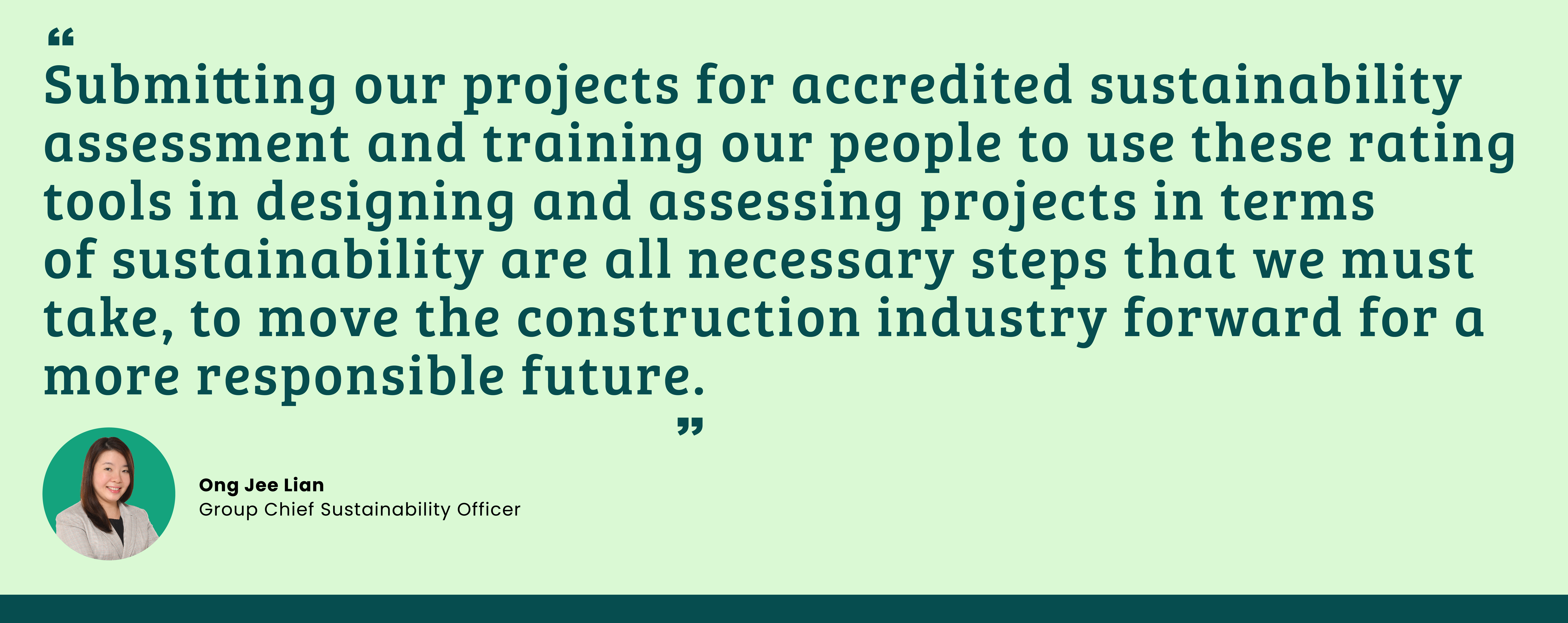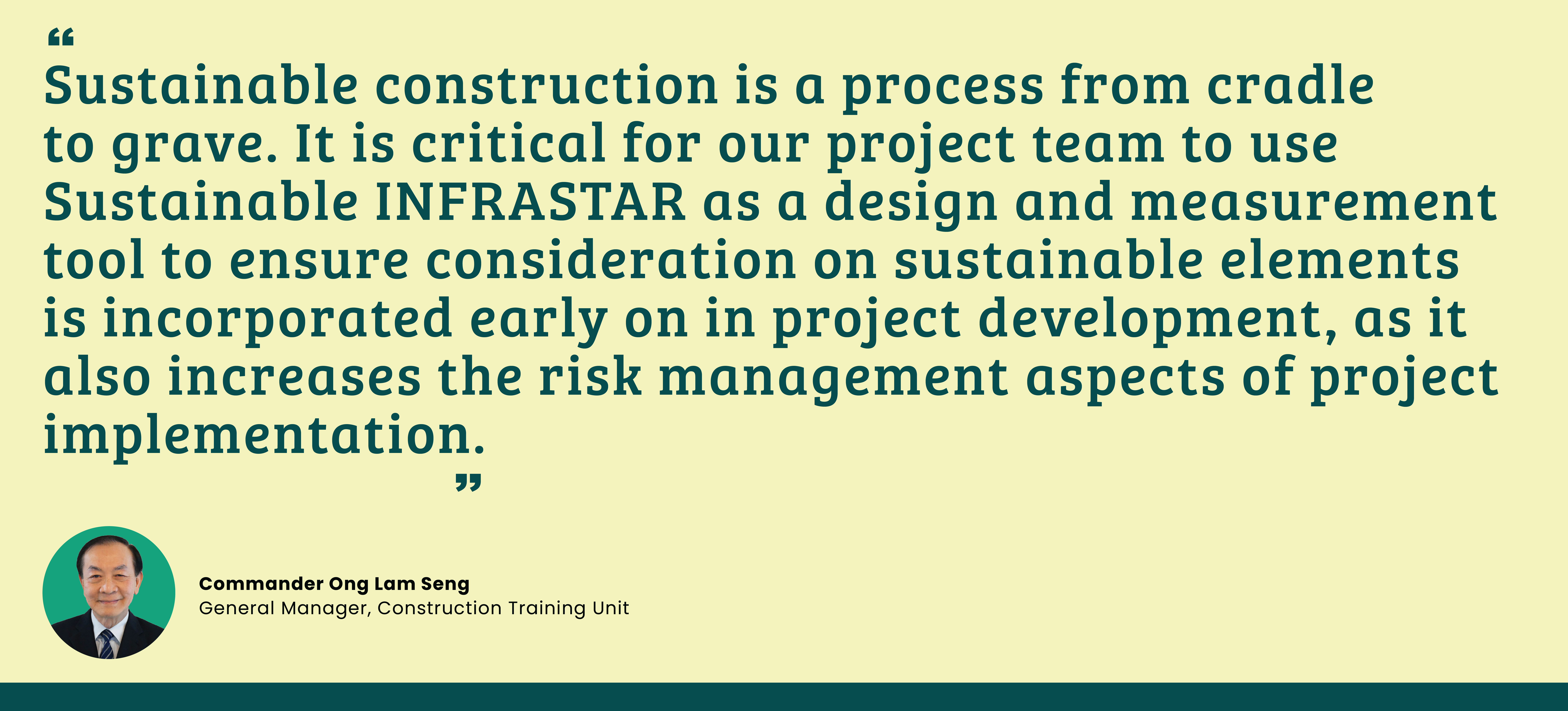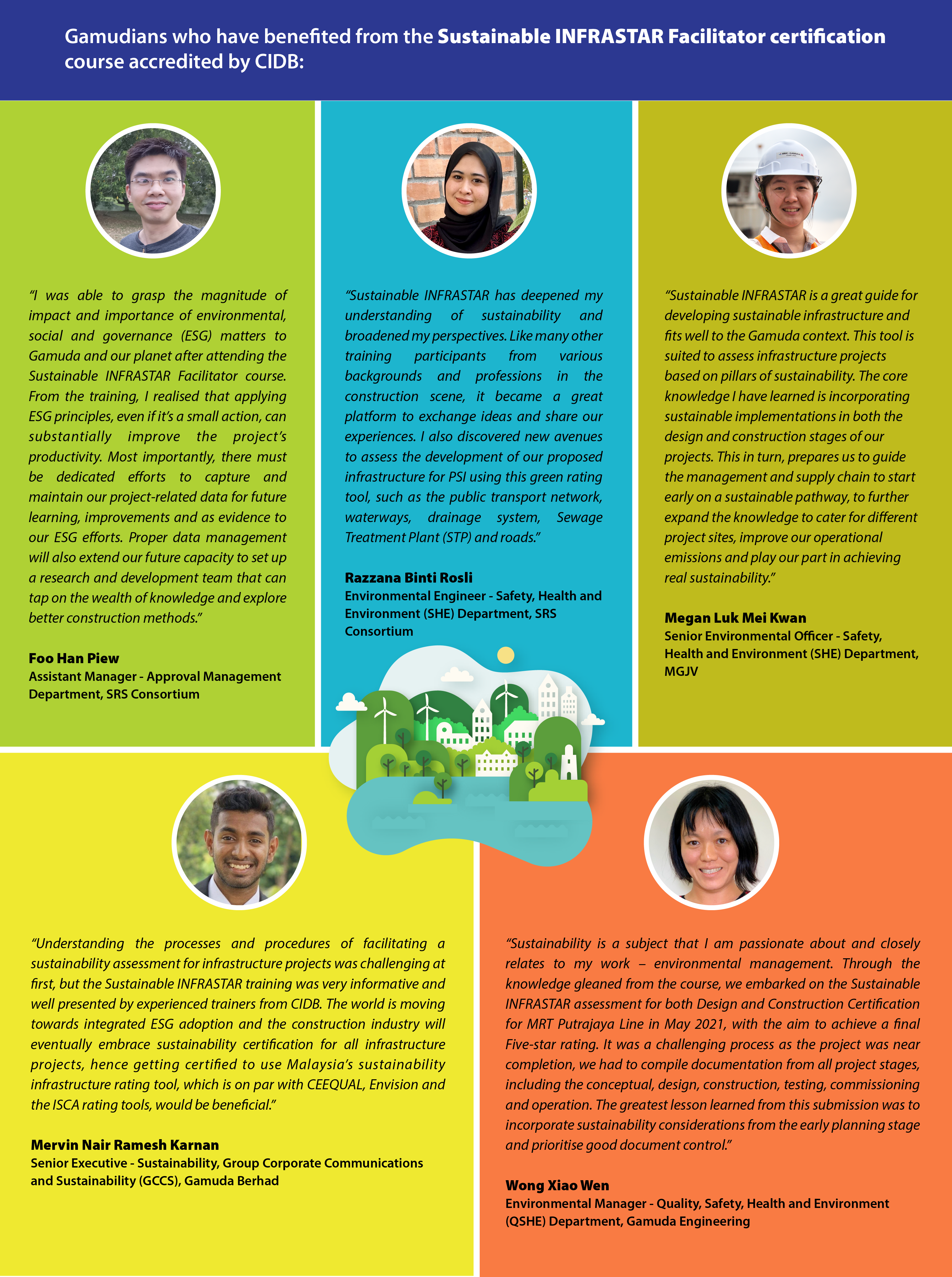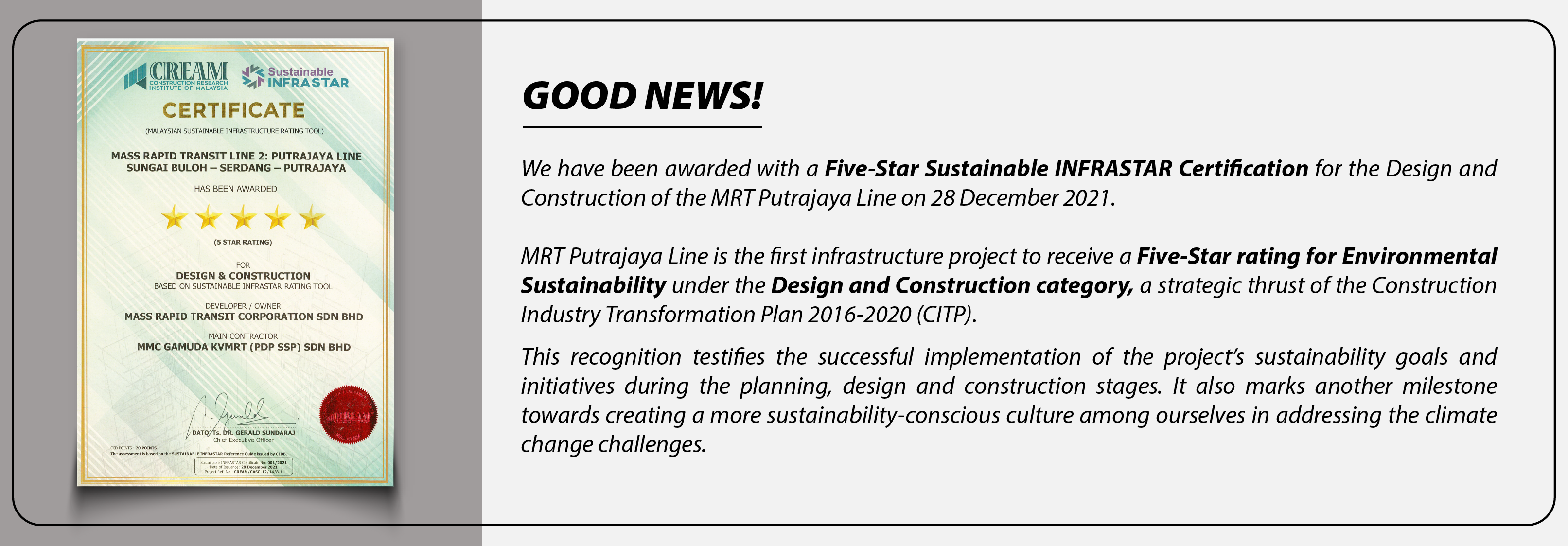Sheena Wong

While the building and construction sector has contributed substantially towards our economic growth, it was responsible for 37% of energy-related carbon dioxide emissions in 2020. The accelerating impacts of climate change have made it imperative to transform how we build. Thus, evaluating the sustainability of a project is no longer an option, but a necessity in our quest to improve sustainability practices within the construction industry and increased productivity.
Sustainable INFRASTAR is an important sustainability rating tool developed by the Malaysian Construction Industry Development Board (CIDB) to measure the sustainable elements in the designing, building and operations of an infrastructure project. Assessment occurs at two project stages, namely design (provisional rating) and construction. Projects that score above 40% assessment points will be given one star, with five stars being the highest score.
Sustainable INFRASTAR has been benchmarked against similar global rating tools such as CEEQUAL from the UK and Envision from the US. It is also similar to the Infrastructure Sustainability Council of Australia (ISCA), but less stringent in requirement and adopts a more comprehensive, whole-life cycle approach that covers the operational emissions, governance structure and workplace management for the entire life cycle from the inception to demolition.
General Manager of Construction Training Unit (CTU), Commander Ong Lam Seng strongly recommends Gamudians from different departments sign up for this accreditation course and be a certified Facilitator of Sustainable INFRASTAR. He opined that every department across the Group should have at least one accredited personnel who is familiar with the rating tool. Knowing the sustainability requirements is essential to planning our work as using the rating framework augments the risk assessment process and increases overall efficiency.
“Gamuda has provided plenty of growth opportunities to keep our workforce agile and aligned to the latest industry needs. Through our interaction with CIDB, CTU has arranged for several employees to attend the Sustainable INFRASTAR courses. Hence, today, we have more than 15 certified Sustainable INFRASTAR facilitators across the Group,” he said.
In January 2021, MRT Putrajaya Line was awarded a Five-Star Sustainable INFRASTAR certification with a superior 91.23% credit percentage for its design phase. Through the knowledge gleaned from the course, we embarked on the Sustainable INFRASTAR assessment for both Design and Construction Certification for MRT Putrajaya Line in May 2021, with the aim to achieve a final Five-star rating. As Sustainable INFRASTAR can be applied to assess most infrastructure projects, it can also be used to assess various components of the Penang South Islands (PSI) project, primarily at the pre-design and pre-construction stages. Moving forward, future infrastructure projects in Malaysia will likely be assessed for Sustainable INFRASTAR.
Developing our people and industry partners via continuous development programmes is critical to implementing Gamuda Green Plan 2025, especially Pillar 1 and Pillar 2. Geared with a foundation in sustainability, we can be well-positioned to reap the benefits of the climate transition that is already underway.
Sustainability rating tools are a necessity moving forward to give recognition to the sustainable efforts made in developing the project and raise the benchmark of the industry. Evaluating the sustainability of a project can also reap many benefits, including cutting down on the construction and operating costs if they include the elements at the early design stage.





